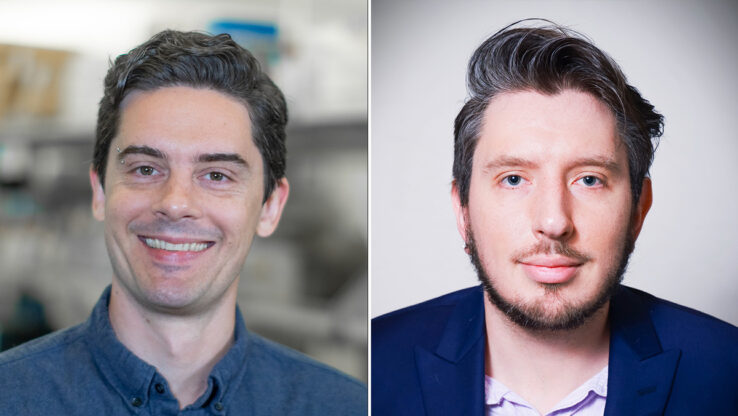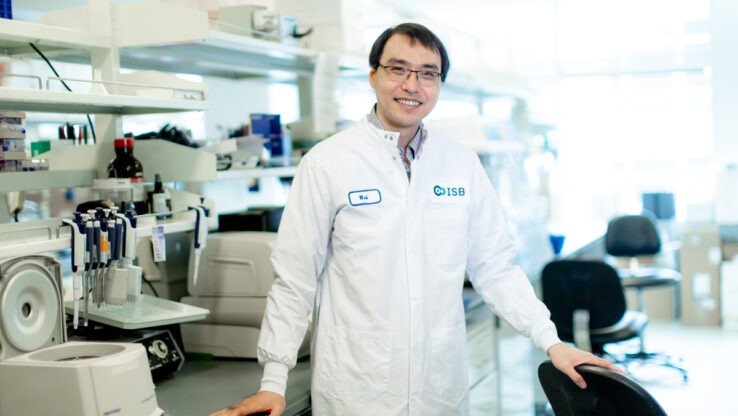A New Approach to Alzheimer’s Disease
 isbscience.org/news/2021/04/21/a-new-approach-to-alzheimers-disease/
isbscience.org/news/2021/04/21/a-new-approach-to-alzheimers-disease/Nearly 6 million people in the United States have been diagnosed with Alzheimer’s disease. The financial impact of this is staggering – roughly $600 billion annually, half for treatments and half reflecting the loss of wages for caregivers. Treatment for the disease, meanwhile, is ineffective. More than 500 consecutive clinical trials for Alzheimer’s disease have failed.
“What this means is the traditional approach to Alzheimer’s isn’t working, and we need to think about it in brand new ways,” ISB Co-founder, Chief Strategy Officer and Professor Dr. Lee Hood said. He made the remarks at an ISB Research Roundtable virtual event, where he discussed a new approach to Alzheimer’s.
Hood began his presentation by sharing the tragic story of his wife, Valerie Logan Hood, who was diagnosed with Alzheimer’s disease in 2005. “Even being a physician and understanding Alzheimer’s, I had very little idea about the enormous impact this would cause on the family,” he recalled.
Watching Valerie slowly slip away to the disease cemented in him the fact that a paradigm change was necessary. He talked about that shift, noting that it isn’t yet accepted by many physicians.
Hood talked about his vision of what healthcare should be: “An ‘n-of-1’ medicine where each individual has their health trajectory measured with a data-driven approach so as to optimize, both for mind and body, that trajectory.” We’d like to extend the wellness part of the trajectory, and to deal with the wellness-to-disease transitions that we all go through with very early diagnosis and reversal, he said.
He cited how Dr. Mike Phelps from UCLA used metabolic PET scanning to determine Alzheimer’s disease could be diagnosed between four and 12 years before the first clinical signs ever appeared.
‘A godsend for Alzheimer’s’
Hood discussed the promising results of multimodal therapies, and the remarkable tendency to move early-stage individuals to a normal level “if you could persuade them to carry out the major lifestyle changes. That of course is always the challenge for therapies.”
He wrapped up his talk by discussing ISB’s Alzheimer’s disease research, including an observational clinical trial using genome/phenome data clouds in very high-risk individuals to follow them to find transition points from wellness to disease, and to get a biomarker, presumably up to 10 years before clinical diagnosis. “This kind of biomarker will be a godsend for Alzheimer’s in the future,” Hood said.
And he followed up his talk with a question-and-answer session where he addressed questions and concerns from audience members.
You can watch his presentation in full by clicking play on the video above, or by going here.
Research Roundtables
ISB is hosting a series of Research Roundtable conversations throughout 2021 that will feature our leading scientists discussing their latest research.
These events are designed for the novice scientist and the expert alike, and are open to anyone interested in the topics. Featured scientists will also answer your questions.
Alzheimer’s disease researcher and ISB Senior Research Scientist Dr. Jared Roach will present May 18. Please sign up here. On April 5, ISB microbiome specialist Dr. Sean Gibbons discussed personalized nutrition and your gut microbiome – you can read about his talk and watch the presentation here.






